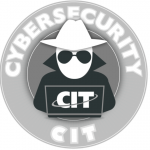 A quick Saturday digest of cybersecurity news articles from other sources.
A quick Saturday digest of cybersecurity news articles from other sources.
 Robot Gains Saudi Citizenship
Robot Gains Saudi Citizenship
From the Smithsonian. Last week, Saudi Arabia, became the first in the world to grant citizenship to a robot during a technological summit held in its capital. Sophia, created by Hanson Robotics, is designed to look like Audrey Hepburn and possesses advanced artificial intelligence. She can carry on conversations, crack jokes and pull an interesting array of facial expressions.
Recent Intel Chipsets Have A Built-In Hidden Computer, Running Minix With A Networking Stack And A Web Server
Inside recent Intel-based systems, there is a separate computer within a computer — one the end user never sees and has no control over. Although a feature for some time, it’s been one of Intel’s better-kept secrets, with details only emerging slowly.
According to Google, which is actively working to remove Intel’s Management Engine (MINIX) from their internal servers (for obvious security reasons), the following features exist within Ring -3: full networking stack, file systems, many drivers (including USB, networking, etc.), and a web server.
TA17-318B: HIDDEN COBRA – North Korean Trojan: Volgmer
11/14/2017 02:00 PM EST Original release date: November 14, 2017
Systems Affected
Network systems
Overview
This joint Technical Alert (TA) is the result of analytic efforts between the Department of Homeland Security (DHS) and the Federal Bureau of Investigation (FBI). Working with U.S. government partners, DHS and FBI identified Internet Protocol (IP) addresses and other indicators of compromise (IOCs) associated with a Trojan malware variant used by the North Korean government—commonly known as Volgmer. The U.S. Government refers to malicious cyber activity by the North Korean government as HIDDEN COBRA. For more information on HIDDEN COBRA activity, visit https://www.us-cert.gov/hiddencobra.
See more information on Barkly blog
Holiday Scams and Malware Campaigns
11/16/2017 08:41 PM EST Original release date: November 16, 2017
US-CERT reminds users to remain vigilant when browsing or shopping online this holiday season. Emails and ecards from unknown senders may contain malicious links. Fake advertisements or shipping notifications may deliver attachments infected with malware. Spoofed email messages and phony posts on social networking sites may request support for fraudulent causes.
To avoid seasonal campaigns that could result in security breaches, identity theft, or financial loss, users are encouraged to take the following actions:
- Avoid following unsolicited links or downloading attachments from unknown sources.
- Refer to our Tips to learn more about Shopping Safely Online and Avoiding Social Engineering and Phishing Attacks.
- Read the Federal Trade Commission’s blog: Holiday Shopping Tips from the FTC.
- Visit the Federal Trade Commission’s Consumer Information page on Charity Scams.
If you believe you are a victim of a holiday phishing scam or malware campaign, consider the following actions:
- File a complaint with the FBI’s Internet Crime Complaint Center (IC3).
- Report the attack to the police and file a report with the Federal Trade Commission.
- Contact your financial institution immediately and close any accounts that may have been compromised. Watch for any unexplainable charges to your account.
- Immediately change any passwords you might have revealed and do not use that password in the future. Avoid reusing passwords on multiple sites. See Choosing and Protecting Passwords for more information.
NOV




About the Author:
I am a cybersecurity and IT instructor, cybersecurity analyst, pen-tester, trainer, and speaker. I am an owner of the WyzCo Group Inc. In addition to consulting on security products and services, I also conduct security audits, compliance audits, vulnerability assessments and penetration tests. I also teach Cybersecurity Awareness Training classes. I work as an information technology and cybersecurity instructor for several training and certification organizations. I have worked in corporate, military, government, and workforce development training environments I am a frequent speaker at professional conferences such as the Minnesota Bloggers Conference, Secure360 Security Conference in 2016, 2017, 2018, 2019, the (ISC)2 World Congress 2016, and the ISSA International Conference 2017, and many local community organizations, including Chambers of Commerce, SCORE, and several school districts. I have been blogging on cybersecurity since 2006 at http://wyzguyscybersecurity.com